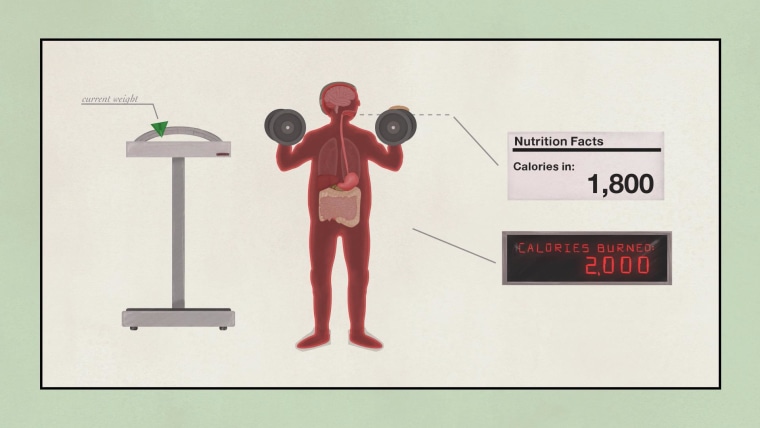As you get older, you may be wondering if there are certain foods you should be focusing on for optimal health.
While the basics of a healthy diet remain similar throughout life, there are certain nutrients you’ll want to focus on, depending on what decade you’re in.
After all, what you ate in your 20s may not be what your body needs as you enter your 30s, 40s, 50s and beyond. From bone density, to hormonal changes, women’s bodies – and their nutritional needs – are changing from one decade to the next.
No matter what decade you’re in, it’s important to have the basics down. Your diet should include lean protein, colorful fruits and vegetables, whole grains and low-fat dairy. After those building blocks are established, consider adding some value-added nutrients, depending on what decade of life you’re in:
In your 20s and 30s:
These active years can put a big metabolic demand on your body, especially if childbearing is part of these years. These decades are foundational for meeting life-long nutrient needs. Focus on:
Lean protein. Support your muscle mass with protein from both plant and animal sources.
Complex carbohydrates. An active lifestyle requires quickly available energy, and foods like whole grains and cereals support that need.
Low-fat dairy. Low-fat dairy products, like milk, cheese and yogurt are the ideal source for strong bones and teeth, which reach maximum strength in these decades. If you can’t tolerate dairy (or choose not to consume it), look for calcium in dark green vegetables like broccoli. Fortified foods (added to products) can be used as a supplement, but don’t exceed 2,500 mg/day.
Iron. Beans, raisins, spinach and lean red meat support your iron needs, which can be depleted from monthly periods and/or a poor diet. Not enough iron in your diet can lead to anemia.
Foods with folic acid. During child-bearing years, this B-vitamin is key for normal fetal development. Look for whole grains, fortified cereals, and bok choy.
In your 40s and 50s:
Fermented foods. Digestive issues are particularly common starting in your 40s—from food intolerances to constipation. These support a healthy digestive tract. Look for yogurt, sauerkraut, kombucha, and kimchee. Add whole grains to provide plenty of nutrients to fuel your healthy gut bacteria.
Fruits and vegetables. Aside from copious amounts of vitamins and minerals, the value-added antioxidants in fruits and vegetables help protect cells from damage that normally occurs with age. Look for a variety of color, as each color provides a different type of antioxidant.
Soy products. During this time, your estrogen levels are normally declining, and you can provide a dietary boost with plant estrogens found in soy. Whether you choose, soy nuts, soy milk, tofu or tempeh, regular consumption can support an easier transition through menopause. (Check with your doctor to ensure you do NOT have any history requiring minimal estrogen levels)
Whole grains and fibrous vegetables. Often during this time, women need a regular boost in fiber to keep “regular” and to feel fuller sooner (and longer) to help prevent weight creep. Choose foods like broccoli, brussels sprouts, cabbage, and cauliflower.
Spices. Using a variety of spices helps to reduce the salt in your diet (often a culprit in high developing blood pressure). Try turmeric as a seasoning on veggies, marinade or tea to support a healthy immune system. Stick with food, and skip the supplements!
Lean proteins. Protein needs increase with age. To figure out your needs, take your current weight in pounds and divide by two. That’s about the number of grams of protein you need
Low-fat dairy. This is a time of declining bone density, and this is one way you can support better bone health. Even if your digestion takes a hit with dairy products, most people can consume one serving of yogurt or kefir (fermented dairy foods) a day.
In your 60s, 70s and beyond:
Eggs. They are a good source of protein and are also nature’s richest source of choline, important for the integrity and health for the aging brain.
Olive oil, fatty fish, and walnuts. The need for omega-3-fats is sustained throughout life, and especially important in aging, both for the heart and brain.
Berries and melons. While fruits are a health plus throughout life, starting in your 60s (when metabolism slows a bit) eating lower-sugar/lower calorie fruits can help prevent weight “creep” over time. Mostly water, berries and melons of all kinds represent “nature’s candy” and a calorie savings when you’re looking for something sweet.
Low fat dairy. The need for calcium and vitamin D is sustained throughout our advancing years. Try a fermented dairy product—like yogurt or kefir—which is easier to digest. Or, look for fortified foods.
Lean proteins: Both plant and animal proteins are necessary to maintain muscle mass that declines with age. Remember that increased protein intake alone will not sustain muscle mass—you must add regular physical activity to boost muscle mass.
And whatever your age, make sure to talk to your doctor if you take any medications or supplements. Sometimes you’ll need to add or remove some foods that interact with medicines.
Madelyn Fernstrom, Ph.D. is NBC News’ health editor. Follow her on Twitter @drfernstrom.
"Eat" - Google News
August 31, 2021 at 02:30AM
https://ift.tt/3mMfY2U
The healthiest foods to eat in every decade of your life - NBC News
"Eat" - Google News
https://ift.tt/35xQHgx
https://ift.tt/2zlBS68
Bagikan Berita Ini



















0 Response to "The healthiest foods to eat in every decade of your life - NBC News"
Post a Comment